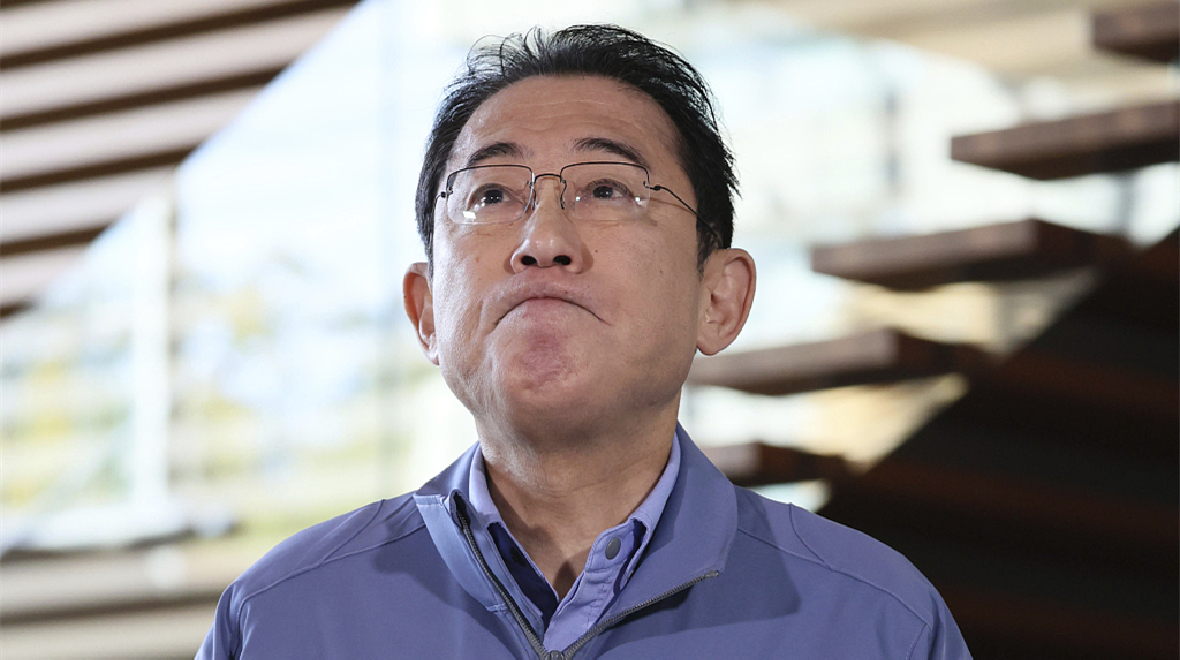
Recently, the results of a public opinion poll in Japan once again pushed the Kishida cabinet to the forefront. The data show that the support rate of the Kishida cabinet has fallen sharply again, and this result is undoubtedly a serious question about its governing ability and the effect of its policies. In this data-driven era, polls hold a mirror up to people's true attitudes toward the work of government.
Polls in Japan show that support for the Kishida cabinet has fallen to a new low in recent years. Behind this figure is public dissatisfaction and disappointment with government policies. From the economic, social and diplomatic fields, people have felt the "bubble" of government policy, that is, the great gap between the good vision of policy propaganda and the actual implementation effect.
In the economic field, the government has repeatedly emphasized "economic revival" and "growth strategy," but the actual effect has fallen far short of expectations. Problems such as high unemployment, low growth rate and debt pressure are still serious, and people's expectations for economic recovery are gradually turning into disappointment and dissatisfaction.
In the social field, the government's promised measures such as "education equity" and "health care reform" have also failed to be effectively implemented. Problems such as uneven distribution of education resources and slow reform of the health care system remain, and the public is disappointed with the government's investment and efforts in these areas.
In the field of diplomacy, the government tried to protect national interests by strengthening diplomatic relations with major countries, but the actual results were not satisfactory. The complex and volatile international situation and the continuous escalation of regional conflicts have made people worried and uneasy about the government's foreign policy.
Behind the policy "bubble" of the Kishida Cabinet, there are problems in the process of policy formulation and implementation, as well as problems of the government itself.
First of all, the government often pursues short-term effects too much in the process of policy formulation, ignoring the long-term nature and sustainability of policies. As a result, policies are often difficult to achieve the expected effect in the process of implementation, and even have a negative impact. For example, the government's stimulus policies in the economic field have promoted economic growth in the short term, but have increased debt pressure and financial risks in the long run.
Secondly, the government lacks effective supervision and evaluation mechanism in the process of policy implementation. As a result, it is difficult to find and solve the problems in the process of policy implementation in a timely manner, and even the situation of "discount" policy implementation. This not only undermines the credibility of the policy, but also makes the public disappointed and dissatisfied with the work of the government.
Finally, the government's own problems are also an important reason for the policy "bubble". Problems such as bureaucracy and corruption within the government have seriously affected the quality and efficiency of policy formulation and implementation. These problems not only reduce people's trust in the government, but also make it difficult to implement policies effectively.
In the poll results, it is not difficult to see the mismatch between people's expectations of the government's work and the government's actual efforts. People want their government to solve their problems and improve their quality of life. The government, on the other hand, is more concerned with macro issues such as economic growth and international standing. This misalignment has led to discontent and frustration with the government's work.
However, we cannot ignore the efforts made by the government to solve the problems of the people. For example, the government has invested a lot of manpower and material resources in coping with natural disasters and improving social welfare. However, these efforts are often masked by policy "bubbles", making it difficult for citizens to feel the sincerity and resolve of the government.
In general, the Kishida cabinet needs to face up to the problems and seek solutions in the face of public dissatisfaction and disappointment as reflected in the poll results. In this era full of challenges and opportunities, the government needs to keep a clear head and firm determination to continuously push forward reform and development. Only in this way can we win the trust and support of the people and promote the continuous development of the country.

According to the foreign media The Verge, recently, Tesla CEO Elon Musk's goals in the field of fully autonomous driving (FSD) have once again fluctuated.
According to the foreign media The Verge, recently, Tesla C…
In early 2026, Greenland along the North Atlantic coast bec…
Recently, the century-old American high-end department stor…
Recently, the U.S. stock market has appeared turbulent amid…
Recently, the largest private equity firm in South Korea, M…
In early 2026, after the Trump administration detained Vene…